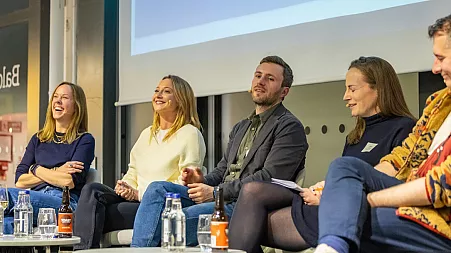Writing a will can be a daunting task but it ensures your money, property, possessions, shares and other assets - otherwise known as your estate - go to your loved ones.
How do you make one?
You can write a will yourself or ask a solicitor to draw one up.
It's generally advisable to use a solicitor because it is easy to make mistakes and they can help you make effective choices.
You are also protected if something goes wrong as solicitors are regulated by the Solicitors Regulation Authority.
What do you include and what does the process involve?
The main thing to consider is who you want to benefit from your estate and personal possessions when you die - be it your spouse, children or parents - and how you want them to benefit.
You can also give directions about your funeral and ask for funeral expenses to be paid from your estate.
Caroline Foulger, partner and head of private client at TWN Solicitors, told Sky News that she first asks clients for a brief overview of their family and assets and then a meeting is set up.
After that, a fee is fixed and if the client agrees to the price, a draft is written up.
Once everyone agrees to what is written, the witnessing process is carried out.
Are you too young for a will?
The legal minimum age to write a will is 18, but that's too young right?
It could be, but what's more important than age itself is where you are in your life - whether you have assets and your personal circumstances.
Sam Grice, founder of the end of life planning company Octopus Legacy, says "procrastination is quite common" but that there are "consequences with inaction".
Mr Grice, who created his company after his mother died in a car accident, says: "I'm a recent father and so a consideration for me is who looks after my child if something were to happen.
"My mum was 60 when she died. It was quick. I'm assuming if I'd asked her she would have thought she was young. People are always thinking they've got that extra 20-30 years but that is not always the case."

After his mother's death seven years ago, Mr Grice says, he wanted to help others through the process of losing loved ones and a "big part of that was allowing people to put plans in place ahead of time".
"It is the best thing you can do for your loved ones, it will help alleviate financial and emotional burdens following your death," he adds.
"It doesn't need to be fear-inducing, it's quite an easy process to get sorted."
Joanna Grewer, partner at Roythornes Solicitors, says "you are never really too young to have a will".
"Nobody thinks about it being important until they think they might be facing death, but actually the earlier you plan, the easier your life becomes," she says.
When Ms Grewer sits down with clients, she says, she looks at "what they are worth on paper".
"We are always worth more on paper than we are generally in life because we have death in service benefits and life policies which kick in after death and people don't think about how it will affect the value of their estate."

She also says a will isn't a document that should be created once but "something you should change as your life develops".
Penny Wright, a partner in the wills, probate and estate planning team at Gardner Leader, agrees.
"It's one of those things that everyone knows they've got to do, but you put off," she says.
"There isn't a specific time people should do it but it is particularly important if you've had a change in your circumstances."

What happens without a will?
If you don't have a will, the so-called intestacy rules kick in - this is the UK government's view of how people should leave their estate.
If the person who died was married or in a civil partnership and has no children, all their estate will go to their partner.
But if they are survived by both a partner and children then the first £322,000 of their estate will go to their spouse or civil partner, along with any of their personal possessions, and anything over £322,000 will then be divided, with the partner receiving 50% of this and the children entitled to divide the other 50%.
If the "intestate" person who died did not have a will, nor any dependents or any known next of kin (entitled blood relatives), then the estate is passed to the Crown - this is known as bona vacantia.
In England and Wales, the Treasury solicitor will then act for the Crown and be responsible for dealing with the estate and collecting assets.
Read more from Money:
Industry insiders on equity release
How much would grandparents earn if they were paid for helping with the kids
Executors and beneficiaries - what are they?
Executors are the people who have the legal responsibility to make sure assets get to the right people under the wishes of the will.
The beneficiaries are those who are named as receiving something under the will.
But often a beneficiary will also be the executor - this is quite common.
How much can it cost?
It depends on the solicitor you use, but prices tend to range from around £150 to £2,500.
Disclaimer: The copyright of this article belongs to the original author. Reposting this article is solely for the purpose of information dissemination and does not constitute any investment advice. If there is any infringement, please contact us immediately. We will make corrections or deletions as necessary. Thank you.



